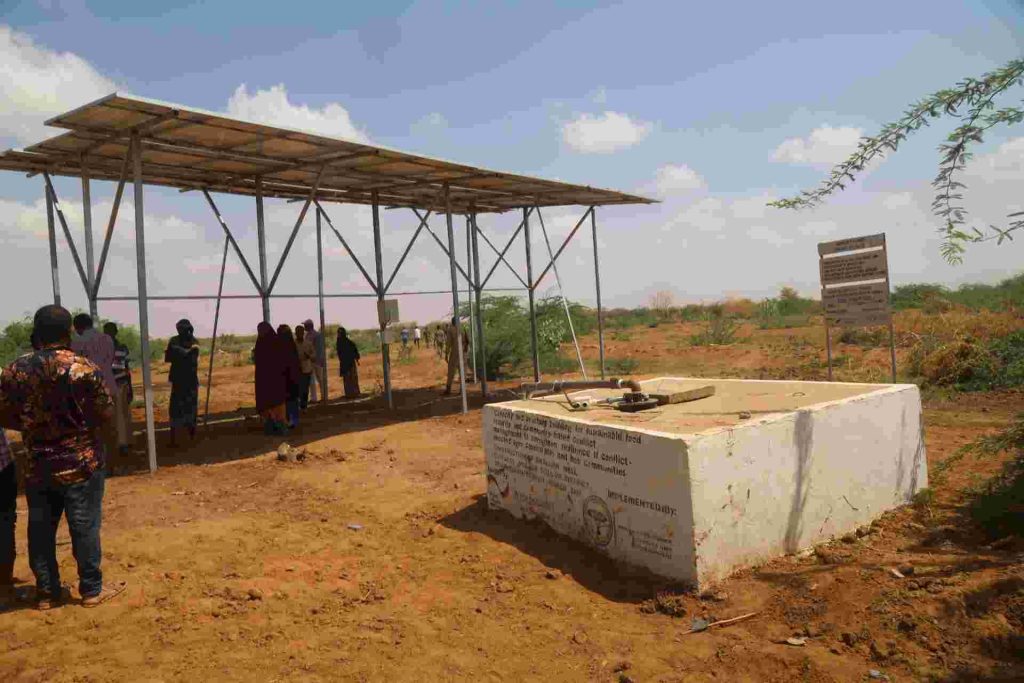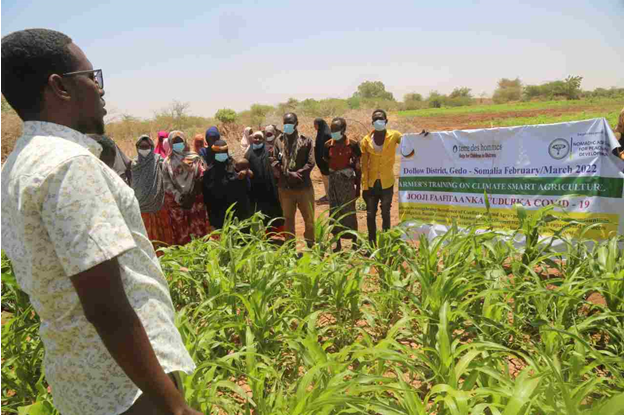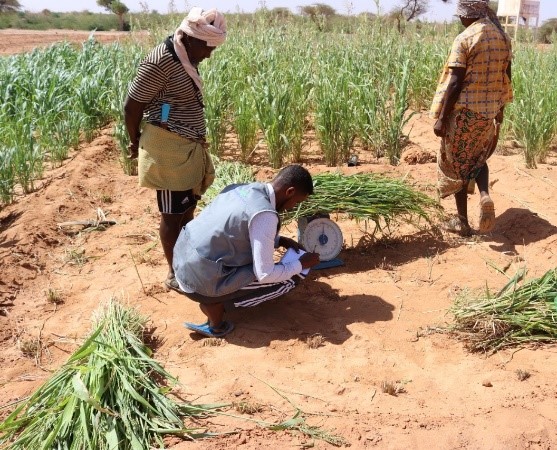Close to the River Jubba in Dollow district, Gedo region in Jubaland lies the Qurdubey village. The village is mainly inhabited by agro pastoralists, who practice irrigation agriculture along the river banks. This subsistence agriculture was characterized by the use of outdated diesel-powered irrigation pumps and shallow earthen irrigation channels that were used to water the crops, although the cost of running the diesel-powered pumps was costly. Additionally, the farms were also often prone to flooding during the rainy season, leading high crop loss. Furthermore, high pest and disease infestation and limited access to agricultural extension services had resulted in low yields and a high cost of production for these agro farmers who mainly grew maize, sorghum, sesame, fruits and vegetables. In recent years, many of the farmers had given up on farming due to the erratic weather patterns caused by climate change such as the drought that severely impacted their livelihoods.
NAPAD’s Transformative Interventions
To improve livelihoods and strengthen the resilience of agro pastoral communities In Qurdubey village, Nomadic Assistance for Peace and Development (NAPAD) in partnership with Terre des Hommes (TdH) with funding from the Federal Ministry for Economic Cooperation and Development (BMZ) is supporting 50 small scale subsistence farmers in Qurdubey village to increase their crop yields and diversify their food sources.
NAPAD has supported these farmers to improve their irrigation infrastructure through the construction of a shallow well, construction of a concrete water storage tank, installation of a solar-powered water pumping system, and installing water pipework that has greatly improved the ease of water flow from the shallow well to the tank and redistribution in the farm making sure there is sufficient water for irrigation.
‘’With the unlimited water supply, we tirelessly work on our farms, and we are able to harvest good yields. I sell my surplus produce at the market and earn additional income which I use to support my household needs,” appreciated Mama Dahabo, one of the 50 farmers.


To better crop production in a changing climate, the farmers have been trained on climate smart farming technologies. The climate smart agriculture trainings cover a range of topics, including enhanced cropping techniques like crop rotation and intercropping, as well as mulching and retaining crop residue. Integrated Pest Management (IPM) and agroforestry are also covered. Specifically, the agroforestry training looks into tree nursery establishment and management practices, and tree improvement techniques, such as grafting and budding. Additionally, the farmers have been provided with improved and seasonally adapted seeds, fertilisers and farming inputs that contribute to the practical implementation of the learned farming practices.

To also ensure that farmers receive ongoing mentorship in agriculture, NAPAD supports them with farmers’ field days. The interaction between the NAPAD agronomists and farmers has resulted in improved agricultural productivity, and a great opportunity for exchanging knowledge and experience with the farmers.

The farmers’ tireless efforts towards embracing solar-powered irrigation have been fruitful. The Qurdubey communally owned farm is now a bustling hub of activity with lush green crops including maize, sorghum, cow peas, sesame, Sudan grass, and vegetables. The farmers who work in groups of five have already reaped a bountiful harvest of maize, beans, and Sudan grass, which serves as vital livestock fodder. In addition to these crops, the farmers have also harvested sesame and some vegetables. The sale of fodder has become a primary source of income for these households in Qurdubey, with each bale fetching $1 USD. Furthermore, they have established a thriving tree nursery, with Moringa, Neem, and fruit trees.


The selling of fodder has become profitable since inadequate rainfall has caused a severe shortage of livestock pasture. This has consequently created a high demand for fodder, which the farmers are able to capitalize on by fetching a good income from its sale.

